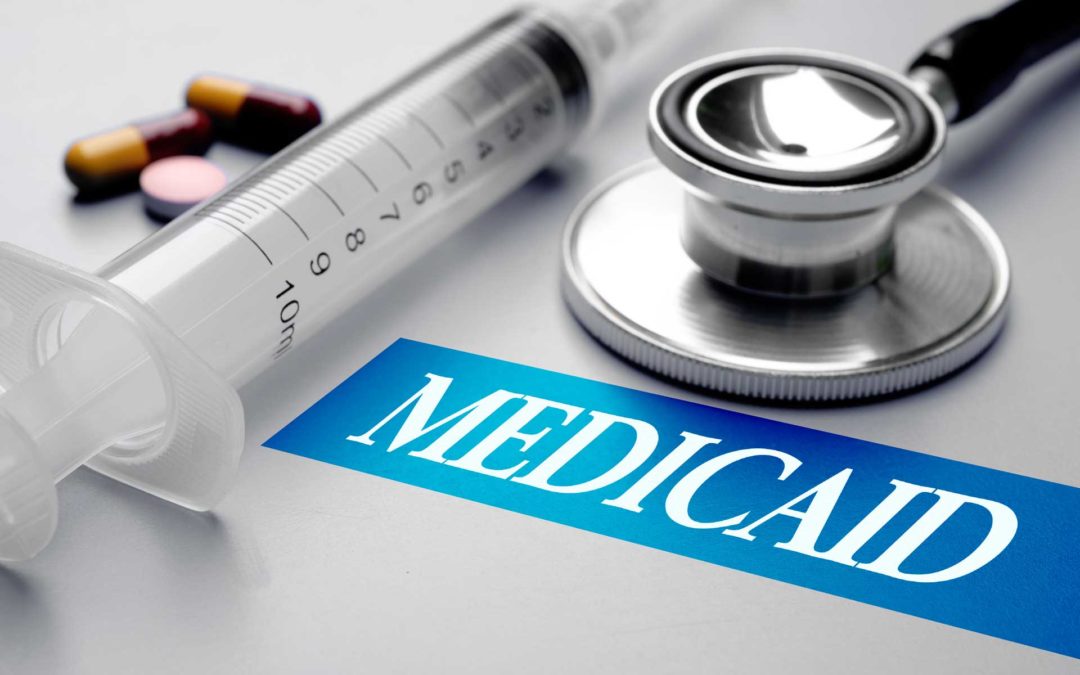At the Reformed Church Home, we completely understand how easy it is to become inundated by an overload of information related to qualifying for, applying for, and receiving Medicaid benefits. The terms used are confusing, and the term “Medicaid” often carries a stigma in people’s minds that it is a service for the poor. Far more than this, it is the government-funded program that helps care for aging members of our society that have exhausted their funds and the ability to independently care for themselves. Keep reading for a brief overview covering the essentials of Medicaid.
What Medicaid is and who qualifies for it
Medicaid is both a state and federal health care program covering 68 million people as of January 2018. Medicaid offers low cost or free health care to:
- Low-income adults, families and children
- People suffering from disabilities
- Certain older adults who use Medicare
Medicaid is especially advantageous for elderly individuals who financially qualify; nearly 7 million Americans over the age of 65 make use of the many comprehensive benefits Medicaid provides, especially where Medicare falls short. Medicaid will provide health insurance and pay for hospital services, prescriptions, doctor visits, and other health care needs depending on the program(s) you’re eligible for. Rules vary by state regarding the cost and types of care you receive with Medicaid.
What does Medicaid cover?
Each state administers its own Medicaid program; however, there are mandatory benefits that federal law requires states to offer, as well as other optional benefits. Some mandatory benefits are inpatient and outpatient hospital services, physician services, and laboratory and X-ray services; optional benefits ranging from occupational therapy to prescription drugs. Unlike Medicare, Medicaid is additionally helpful for elderly patients, as it does have many different programs for those who need health care services, particularly for long-term care facilities such as our senior living community at Reformed Church Home. Without the assistance of Medicaid, many elderly patients would be unable to afford their coverage, even with the help of Medicare. Medicaid bridges the gap and provides invaluable assistance, which will allow patients to afford senior living facilities and hospital services, as well as more comprehensive health care needs.
Medicaid qualifications and requirements
Medicaid varies greatly from state to state, which is why it’s important to do your research and make sure it’s specific to New Jersey if planning a move to a community such as Reformed Church Home. Income plays a huge role when applying, as your assets and income will be taken into consideration. It is possible to qualify even if your monthly income is above the cut-off level. The NJ FamilyCare Aged, Blind, Disabled Program will cover individuals in the state over 65 who are both clinically and financially eligible. For patients over age 65, additional benefits include home- and community-based services, as well as nursing home support. Medicaid also does include comprehensive and quality services, such as rehabilitative care and mental health services.
To qualify, you must be a New Jersey resident and a U.S. citizen or qualified immigrant, with legal permanent residence status for no less than 5 years. When you choose a NJ FamilyCare health plan, you will receive additional services through Managed Long-Term Services and Supports (MLTSS), including nursing care and assisted living facilities assistance.
According to the American Council on Aging, the maximum monthly income a single person can make to qualify for Medicaid (needing institutional/nursing home care) is $2,382 per month in 2021. Those with higher monthly income amounts can still apply, but an extra step will need to be done – a Qualified Income Trust (QIT) must be set up. Ask your legal advisor about this trust and all of its stipulations, as space limitations prevent further discussion here. In addition, an individual in NJ must have under $2,000 in assets (such as savings and checking accounts) in order to apply for Medicaid. There will be a 5-year look back of your financial accounts and resources. In most cases, if money has been gifted or misappropriated within the past 5 years, Medicaid will impose a penalty, denying benefits for a certain period of time. This causes some applicants to be in a very tough situation, perhaps needing medical services or nursing home care with no available payer source.
The eligibility requirements for married couples with both spouses applying, or just one spouse applying for Medicaid to cover nursing home care, are different, and more information can be found at https://www.medicaidplanningassistance.org/medicaid-eligibility-new-jersey. This site is updated by the American Council on Aging.
Medicaid applications in NJ are made at the county level, so contact the Board of Social Services in the county in which you wish to apply (that is, the county the resident lives in). Here is a link to the locations in NJ: http://www.state.nj.us/humanservices/dfd/programs/njsnap/cwa/ A case worker will be assigned and explain the required documents needed to start the application (see http://www.nj.gov/humanservices/ddd/documents/medicaid_document_verification_checklist.pdf for more information on documents needed in NJ). Alternatively, you can use an elder care attorney experienced in navigating the Medicaid application maze in NJ, or a Medicaid specialist (there are several in the state, each with different fee structures and levels of knowledge, so research any firm you plan to employ and check online reviews.)
Finally, it is important to note that it is possible to qualify for Medicare and Medicaid programs simultaneously—this is known as being “dual eligible.” As simply having Medicare may not be enough to cover your additional costs if you are over 65, dual eligibility will allow you to make the most of both programs, especially with the additional benefits Medicaid provides. It is possible for Medicaid to pay some of your Medicare fees, but make sure to verify this information. In New Jersey, you can learn more here.
Medicaid in Old Bridge
If you or your loved ones want to make use of Medicaid here in New Jersey, it’s important to first find out if you qualify for Medicaid. Visit our state’s Medicaid website or call (800) 356-1561 for more information. When it comes to researching programs that provide health coverage, it’s not uncommon to hear people use Medicaid and Medicare interchangeably. But there are big differences. An easy way to remember the difference is to think of the following:
- MediCARE cares for the elderly regardless of income
- MediCAID is like financial aid for the elderly and those with low incomes
At Reformed Church Home, we accept Medicaid in our assisted living community following a private pay period, and also accept Medicaid in our skilled nursing facility based on availability of a Medicaid bed. To learn more, contact Reformed Church Home at (732) 607-9230, ext 109 or abisiolu@rchnj.org.
Call us today to learn more. We are happy to help!


